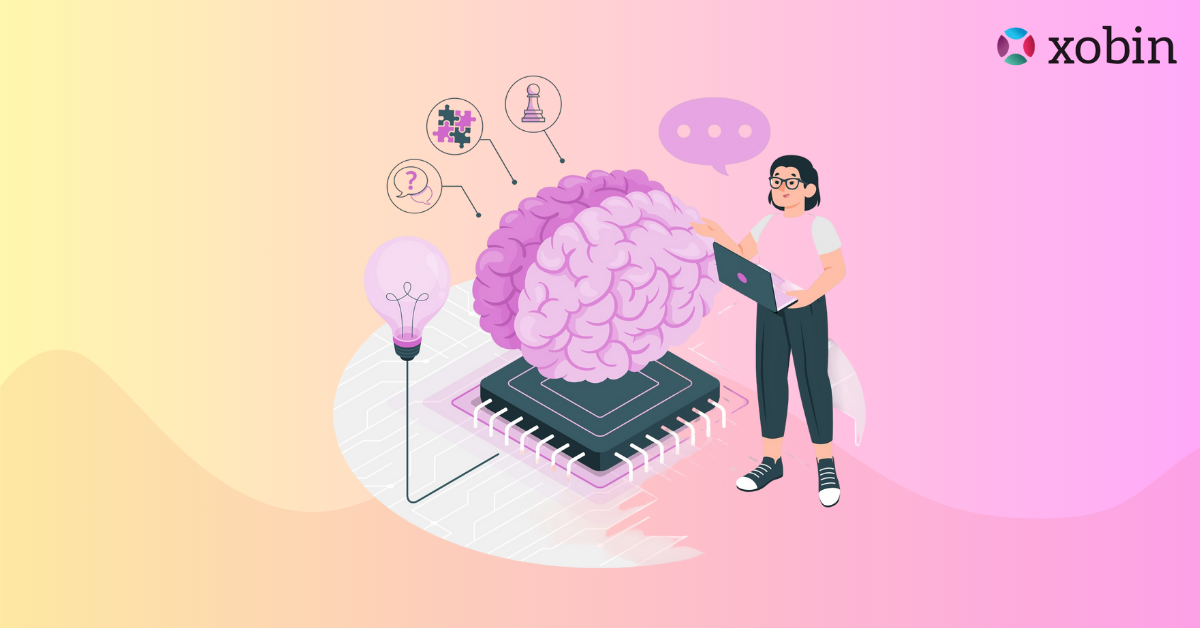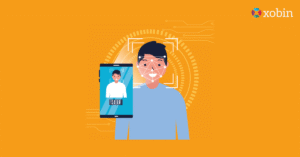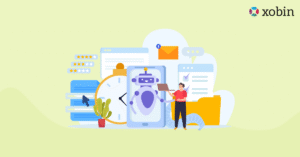Traditional hiring methods often fall short. They can lead to poor hires, unconscious bias, and high employee turnover. Many recruiters still rely on resumes and gut instincts, which don’t always reveal a candidate’s true potential. Fortunately, technology offers a smarter solution. AI-based psychometric tests combine artificial intelligence with psychological insights to give deeper and unbiased evaluations of candidates. These psychometric assessments help recruiters look beyond resumes and interviews to find real talent.
Table of Contents
Moreover, this technology speeds up the hiring process and ensures fair, data-driven decisions. It transforms recruitment into an efficient, accurate system that focuses on skills and potential. Now, let’s explore how AI makes recruitment smarter and more effective than ever.
TL;DR – Key Takeaway!
- AI-based psychometric tests revolutionize recruitment by providing deeper insights into candidates’ cognitive abilities, personality, and cultural fit beyond resumes and interviews.
- These tests use machine learning and data analytics to deliver objective, bias-free evaluations, minimizing unconscious bias in hiring.
- Recruiters benefit from adaptive, real-time assessments that speed up decision-making and improve the quality of hires.
- AI-driven psychometric tests generate comprehensive candidate profiles, predicting job success and reducing costly bad hires.
- The integration of behavioral analytics, facial recognition, and voice tone analysis enhances candidate evaluation accuracy.
- Future trends include dynamic testing, multimodal assessments, and predictive analytics for talent forecasting.
- Adopting AI-based psychometric tests helps recruiters hire smarter, faster, and fairer while improving candidate experience and employer branding.
- Platforms like Xobin’s AI-powered psychometric software offer scalable, bias-mitigated, and adaptive testing solutions for all business sizes.
- Embrace the role of AI-based psychometric tests today to stay competitive in a rapidly evolving hiring landscape.
What Are AI-Based Psychometric Tests?
Psychometric tests have long been used to measure candidates’ mental capabilities and personality characteristics. However, the role of AI-based psychometric tests introduces a transformative dimension by utilizing artificial intelligence algorithms to analyze results at a scale and depth impossible for manual methods.
AI-based tests leverage machine learning, natural language processing, and data analytics to evaluate cognitive skills like problem-solving, critical thinking, and decision-making, alongside personality traits such as motivation, resilience, and teamwork aptitude.
This fusion of AI and psychometrics results in,
- More accurate assessments due to data-driven interpretation.
- Personalized evaluation models tailored to specific job roles.
- Real-time feedback for quicker hiring decisions.

Why Are AI-Based Psychometric Tests Critical in Candidate Evaluation?
Recruiters deal with numerous challenges, high volumes of applications, unconscious bias, and the difficulty of predicting candidate success. AI-based psychometric tests address these challenges head-on.
1. Objective and Bias-Free Hiring
Human bias, conscious or unconscious, affects recruitment decisions. Research shows biases can influence hiring based on gender, ethnicity, or educational background. AI-driven psychometric assessments minimize such biases by focusing strictly on candidate responses and behavioral data.
2. Comprehensive Candidate Profiling
AI-based psychometric tests combine multiple data points (cognitive skills, personality, motivation, and behavior) to create a holistic candidate profile. This comprehensive approach helps recruiters predict how candidates will perform in real job scenarios.
3. Improved Predictive Accuracy for Job Success
Studies show that combining AI and psychometric testing improves prediction accuracy for candidate performance and cultural fit. AI models can correlate test results with historical employee success data, increasing the likelihood of hiring high performers.
4. Real-Time Data Analysis and Quick Decision Making
Manual psychometric testing and evaluation are time-consuming. AI automates answer evaluation, scoring, and analysis, reducing recruiter workload. This accelerates the hiring process, reducing time-to-hire and enabling prompt decisions.
5. Customized and Scalable Assessments
AI tailors psychometric tests to specific job roles, seniority levels, and organizational cultures. Recruiters can scale evaluations to any volume of candidates without sacrificing quality or relevance.
Key Benefits of Using AI-Based Psychometric Tests for Recruiters
1. Better Quality Hires
By scientifically measuring cognitive and personality factors, AI-based psychometric tests help recruiters identify candidates who are not only skilled but also culturally aligned. This synergy leads to better job satisfaction and longer tenure.
2. Data-Driven Hiring Decisions
In a world where resumes can be polished and interviews rehearsed, AI-based psychometric tests provide objective data. They eliminate human biases and focus purely on candidate capabilities and compatibility. This data-driven approach leads to better hires who perform well and stay longer.
3. Enhanced Candidate Experience
AI allows for shorter, more engaging assessments customized to the candidate’s responses. This adaptive testing ensures candidates are neither bored nor overwhelmed, improving their overall experience and perception of the employer brand.
4. Reduced Recruitment Costs
Accurate candidate evaluation means fewer bad hires. Organizations save on costs related to training, onboarding, and rehiring. AI-based tests streamline the screening process, reducing dependency on manual assessments.
How Do AI-Based Psychometric Tests Work in Candidate Evaluation?
Data Collection & Analysis
Candidates take tests designed to measure multiple dimensions such as cognitive skills, emotional intelligence, personality traits, and cultural fit. AI analyzes these inputs using algorithms trained on vast datasets.
Adaptive Testing
Unlike static tests, AI dynamically adjusts questions based on candidate responses, ensuring the evaluation remains challenging and relevant, thereby producing more accurate results.
Behavioral Insights
Some AI systems use speech and facial recognition during video assessments to evaluate micro-expressions, tone, and communication skills, which are difficult to quantify manually.
Reporting & Recommendations
AI generates detailed reports highlighting candidate strengths, development areas, and job fit scores. These insights enable recruiters to make data-driven hiring decisions confidently.

Key Trends Shaping the Future of AI-Based Psychometric Tests
1. Advanced Personalization and Adaptivity
The future of AI-based psychometric tests is rooted in personalized assessments. Using AI, psychometric platforms can adapt questions dynamically based on a candidate’s previous answers. This not only improves test accuracy but also ensures an engaging experience, reducing candidate dropout rates.
2. Adaptive and Dynamic Testing
AI-powered psychometric tests will become increasingly adaptive, altering test paths dynamically to probe deeper into specific skill areas or personality traits. This flexibility ensures a thorough evaluation tailored to each candidate.
3. Multimodal Assessment Techniques
AI enables psychometric tests to go beyond questionnaires. Future assessments might combine facial expression analysis, voice tone evaluation, and behavioral analytics during video interviews to provide holistic candidate profiles. This multimodal approach captures nuanced insights that traditional tests miss.

4. Predictive Analytics for Talent Forecasting
AI-powered psychometric tools will increasingly use predictive analytics to forecast future job performance and employee retention. By analyzing vast datasets from past hires, these systems can identify patterns that predict success in specific roles, helping recruiters make smarter hiring decisions.
5. Bias Reduction and Fair Hiring
One of the most significant advantages of AI in psychometric testing is its potential to reduce unconscious bias. Sophisticated algorithms can be trained to focus solely on candidate skills and traits, minimizing the impact of gender, ethnicity, age, or other demographic factors in hiring decisions.
6. Real-Time Behavioral and Emotional Analysis
Future psychometric tools will integrate video and audio analysis using AI to assess candidates’ micro-expressions, speech patterns, and emotional states during assessments. This adds an additional layer of insight beyond traditional questionnaires.
Why Recruiters Should Start Adopting AI-Based Psychometric Tests Today?
Recruiters are under increasing pressure to hire faster, smarter, and more fairly. Traditional hiring methods often depend on gut feeling, unstructured interviews, and skills-based assessments. However, these approaches may not fully reveal a candidate’s true potential. That’s exactly where AI-based psychometric tests play a vital role.
- They provide deeper insights beyond what a resume can show.
- They help spot high-potential talent early in the process.
- They remove unconscious bias from the hiring decision.
- They boost hiring speed and overall efficiency.
- They lower turnover rates and support employee retention.
- They are easy to scale and customize for different roles.
- They also help strengthen your employer brand.
Recruiters who want to stay ahead must use tools that offer real, measurable outcomes. The use of AI-based psychometric tests has moved beyond niche roles. Today, it is becoming a standard best practice. Adopting these tests today gives you a competitive edge in tomorrow’s talent market.
How Xobin Transforms Candidate Evaluation with AI-Driven Psychometric Testing?
While many platforms claim to offer AI-based psychometric tests, Xobin truly transforms candidate evaluation with its advanced, AI-driven assessment engine. By combining cognitive ability tests, personality assessments, and real-time analytics, Xobin delivers insights that go beyond surface-level data, helping recruiters uncover true potential.
What sets Xobin apart?
- Adaptive testing that tailors questions based on candidate responses.
- Real-time analytics that empower instant decision-making.
- Bias-mitigated AI algorithms to ensure fair and objective evaluations.
- Behavioral and cognitive assessments integrated into a single, seamless experience.
- Scalable platform suitable for startups, enterprises, and everything in between.
Xobin’s AI-powered psychometric testing software isn’t just software, it’s your strategic advantage in building a future-ready workforce. Book a personalized demo and experience the future of hiring with Xobin – smarter, faster, and fairer!
Frequently Asked Questions (FAQs)
1. How does AI improve psychometric testing accuracy?
AI algorithms analyze complex response patterns and continuously learn, enhancing prediction of candidate success.
2. Can AI-based psychometric tests assess soft skills?
Yes, AI can analyze personality traits, emotional intelligence, and behavioral patterns to assess various soft skills effectively.
3. Are AI-based psychometric tests suitable for all industries?
Absolutely. AI psychometric assessments are adaptable and scalable for diverse roles and industries.
4. What should recruiters consider when choosing AI psychometric software?
Look for adaptability, data security, integration capabilities, transparency, and ongoing AI improvements.
5. Do AI-based psychometric tests guarantee perfect hires?
While no tool guarantees perfection, AI psychometric assessments significantly improve the likelihood of making the right hire.






